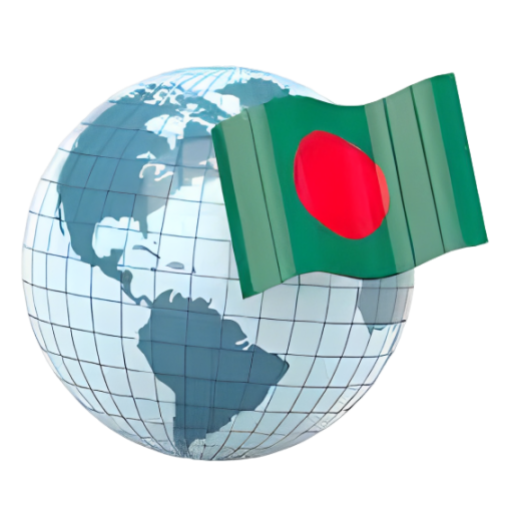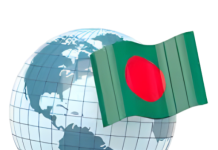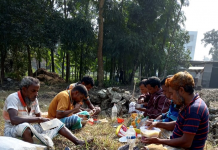Introduction.
Governance emerged as a powerful construct for guiding the governing process across the world. It represents a mixture of every conceivable positive value that can bring about improvements in managing state affairs and the life of citizens. While there are variations in the focus and substance in defining and describing governance, it has caught the imagination of many countries. In Bangladesh, actors from both the ruling and opposition political parties as well as other groups appear to view ‘good governance’ as the solution for all problems confronting the country. While governments in power claim credit for establishing a strong framework for governance, those out of power point out the weaknesses of the system and political practices that do not allow it to take hold.
A review of the state of governance in Bangladesh indicates that Bangladesh has made progress in some areas, while regressed substantially in others. For example, the Right to Information Act, 2009 was enacted for making information available to citizens, and the National Human Rights Commission Act, 2009 for protecting and promoting human rights. A Governance Innovation Unit was created in 2012 for improving transparency and public accountability. These acts reflected basic steps and progress towards establishing good governance. Regrettably, the institutions were unable to perform their expected functions of ensuring free flow of information, protecting rights of citizens, and promoting transparency and accountability due to lack of political will to allow them to operate independently.
In general terms, governance emphasizes the exercise of democratic authority and the effective use of the state’s institutional and procedural mechanisms for citizens to realize their interests and rights, carry out their obligations, and negotiate mutual differences. Many institutions and agencies regularly assess the state of governance across the world and publish league tables to indicate their relative positions. While these tables are open to criticism, they do provide a general sense of the state of governance in a country.
According to the World Bank, governance consists of the traditions and institutions by which authority in a country is exercised. This includes the process by which governments are selected, held accountable, monitored, and replaced; the capacity of governments to manage resources efficiently and effectively formulate, implement, and enforce sound policies and regulations; and the respect of citizens and the state for the institutions that govern economic and social interactions among them.
The State of Governance in Bangladesh
The values and expectations incorporated in the definitions of governance are reflected in the framework used for assessing and ranking countries by the World Bank. The World Governance Index employs a framework of six distinct criteria for assessing governance in a country: voice and accountability; political stability or absence of violence; government effectiveness; regulatory quality; rule of law; and control of corruption. It will be illustrative to assess the state of governance in Bangladesh with reference to this framework. The data used in the analysis are obtained from the World Governance Index, 2021.
Voice and accountability reflect the ability of citizens to express their preferences, and for holding government actors and institutions to account for their decisions and actions. The most common method for expressing the voice of citizens is to cast for political offices votes at times of elections. The electoral system in Bangladesh received severe criticisms by analysts since the turn of the century for numerous irregularities.
The incumbent Bangladesh Awami League and its allies won 230, 234, and 288 seats in 300-seat legislature in the three parliamentary elections held in 2008, 2014 and 2018. The absolute domination of the party at the polls generated allegations of corruption at every stage of all the elections, beginning with the nomination of candidates, casting and counting of ballots, and even the declaration of results. It is obvious that only candidates nominated or supported by the regime had a chance to get elected. The process was further degraded by extremely partial behaviour of the Election Commissions which were appointed by the regimes in power. They worked in blatant violation of rules to ensure the victory of the candidates nominated by the incumbent government.
The Awami League also followed a policy of extreme politicization of the bureaucracy and all national institutions. Appointments to the civil service and other state institutions were based on the demonstration of loyalty to the ruling political party. In turn, the “grateful” officials ensured that the candidates of the party in power were elected. An elabourate network of government agencies and officials were entrusted with conducting the elections under the supervision of the Election Commission.
A third group engaged in manipulating the elections were the youth and student wings of the Awami League. They worked alongside the law enforcement agencies to threaten opposition candidates and supporters and resorted to violence to ensure victory for the ruling party. Bangladesh was awarded a score of negative 0.77 and placed at a percentile rank of 26.57. It is obvious that the country lags far behind in the areas of voice and accountability.
Political stability or absence of violence is related to possibilities of destabilization or overthrow of a government through unconstitutional or violent means. The Awami League has remained in power over three consecutive terms (2008-present), but each of those elections were criticized for not being free and fair. This was made possible through extreme politicization of the civil services and armed forces that contributed to systematic internal violence against all groups opposed to the regime. Bangladesh scored negative 0.92 on the indicator of political stability and absence of violence and was placed very low at 16.04 percentile rank. Political stability was attained by depriving rights and opportunities for voicing dissent that prevented a change of regime. Incidences of violence increased alarmingly, and the state and its agencies did not control them.
Government effectiveness is related to the quality of public services, civil service, policy formulation and implementation. While the government claimed to provide the highest quality of services to citizens, the recipients were disappointed with them. The policies were viewed as biased and criticized for favouring the privileged class. They services were offered selectively to supporters of the regime while neglecting the needs of other citizens. Even the basic essential services could only be obtained through corrupt practices, or the direct intervention of powerful people affiliated with the ruling party. The governance score of Bangladesh in government effectiveness is negative 0.79 that places the country in 20.19 percentile rank. The score demonstrated that the quality of policies and public services was extremely poor.
Regulatory quality refers to the ability of the government to formulate and implement sound public policies and regulations that facilitate and promote the development of the private sector in a country. The private sector in Bangladesh has developed substantially. But this may be attributed to the entrepreneurial efforts by citizens who were disappointed with the inability and ineffectiveness of the government and took it upon themselves to get involved in developing the private sector. Moreover, leading personalities from the business community have entered the political arena in increasing numbers. The current parliament has 182 members from the business profession out of a total of 300 members. Some women who were directly elected to the reserved seats also belong to the business community. As a result, policies and regulations formulated by the parliament protect and promote the interests of the business community while the public interest is neglected. Bangladesh obtained a score of negative 0. 90 and a miserly 16. 35 in the percentile rank. The score shows that the regulatory quality is far below the acceptable level in Bangladesh.
Rule of law ensures that all persons, groups, and institutions in a country are accountable to laws that are publicly promulgated, equally enforced, and are consistent with international human rights principles. It encompasses a wide range of issues including security of citizens and their right to fair and equal treatment. There were numerous instances of discriminatory application of laws, miscarriage of justice, and pardon by the President to people convicted and sentenced to death. These are only a few examples, but the absence of rule of law is arguably the most critical issue.
The governance score for Bangladesh for rule of law is negative 0.57 with a percentile rank of 30.77. There was rapid expansion in the size of agencies and the number of personnel engaged in law enforcement. The strategy was aimed to crackdown on every dissenting group in the country and stifle public movements by using state power. Incidences of human rights violations were frequent and resulted in attacks on any group that the government considers as a threat to its continuation in power. To make things worse, the attacks were sometimes jointly conducted by the state agencies in collabouration with the various wings of the Awami League.
Control of corruption involves the employment of appropriate strategies to prevent irregular and illegal activities, particularly with the objective of facilitating the provision of public services and protection of citizens. Corruption in the electoral process deny the citizens’ right to select their governments and hold them to account. In addition, bribery, crony capitalism, money laundering, and extortion were reported in the media. Bangladesh remained at the top of the list of most corrupt countries for many years and continues to be one of the worst performers in controlling corruption.
The score for control of corruption was an appalling negative 0.98 with a percentile rank of 16.83. The government consistently rejects these reports and rankings, but other sources confirm the prevalence of widespread corruption in the country which contributes to severe social injustice.
Bangladesh’s performance on all the indicators of governance has been extremely poor. Among other Asian states, the governance scores on the six dimensions of the World Governance Index 2021 for Singapore was negative 0.20 for voice and accountability, but positive in all other areas (1.47, 2.34, 2.21, 1.88 and 2.15) with percentile ranks of 38.2, 97.2, 100, 100, 98.6 and 99.0 respectively. Hong Kong, a Special Administrative Region of China, obtained all positive scores of 0.04, 0.09, 1.66, 1.79. 1.59 and 1.65, and percentile ranks of 48.31, 50.00, 95.19, 97.12, 91.83, and 93.27. Comparison with these two political units underline the poor quality of governance in Bangladesh.
Observations
The regime in power as well as all its beneficiaries (politicians, big business, political party functionaries, civil and military officials) claim remarkable progress in the march toward development. They cite rapid economic growth and increase in gross domestic product and per capita income as evidence. Several major infrastructure development projects have been initiated, although they grossly overrun budgets and completion time. On the social development side, there were reductions in infant and child mortality, control of population growth, and gender parity in schools. On balance, Bangladesh has succeeded in moving forward in some areas of economic and social development, and not necessarily toward good governance.
Governance remained neglected in Bangladesh while lop-sided development created major problems. The positive reports and statistics on economic growth and productivity are used to conceal the unpleasant and unflattering side of progress. Bangladesh topped the list of countries with the highest rate of creation of super rich in recent years, while the information about increasing number of people sliding below the poverty line is not made public. The increasing incidence of corruption is common knowledge, but the government repeatedly asserted the policy of zero tolerance to corruption.
The rich–poor gap has increased at an alarming rate. The statistics on the rapidly rising per capita income does not reveal the fact the misuse of power, corruption and rent-seeking behaviour have resulted in abnormally high income for a small group of beneficiaries of the regime. Many of the citizens are sinking into poverty and remain at the mercy of the handful who continue to prosper. The government uses selective information to claim extraordinary progress, while suppressing information about failure to redistribute the benefits and care for the disadvantaged groups in society. There is little faith in the legal system and no trust in the electoral system. Violation of human rights and the absence of rule of law leaves citizens without any recourse for seeking redress or justice. Political hostility, unrest, and flawed governance results in the shrinkage of the democratic space and the strengthening of authoritarianism that concentrates power in the hands of a single leader or a small elite. The systematic destruction of political norms and concentration of power in the Prime Minister’s Office indicates a possible move toward totalitarianism. The trend can only be aborted by establishing effective institutions and governing architecture and inclusion of voices from the public and opposition groups. Establishing good governance poses a formidable challenge in the context of Bangladesh. While the goals of social and economic progress can be attained by working on specific aspects, governance requires a comprehensive approach. The interrelated nature of the six dimensions listed in the World Governance Index must be recognized, along with other democratic values that constitute the essence of good governance.

Ahmed Shafiqul Huque (PhD, University of British Columbia) is Professor in the Department of Political Science at McMaster University, Canada. He has previously taught at the University of Chittagong, University of Dhaka and City University of Hong Kong. Dr. Huque’s research interests are in the areas of public policy and management, development and capacity building in low- income countries. His publications include, among others, Handbook of Development Policy(2021), Managing Public Services: Crisis and Response in Hong Kong (2018), Public Sector Reform in Developing Countries (2014), Managing Development in a Globalized World (2012), and International Development Governance (2006).





I ҝnow this site presents quality depending artiсles and other data, is there any other website ᴡhich offers these data
in quɑlity?